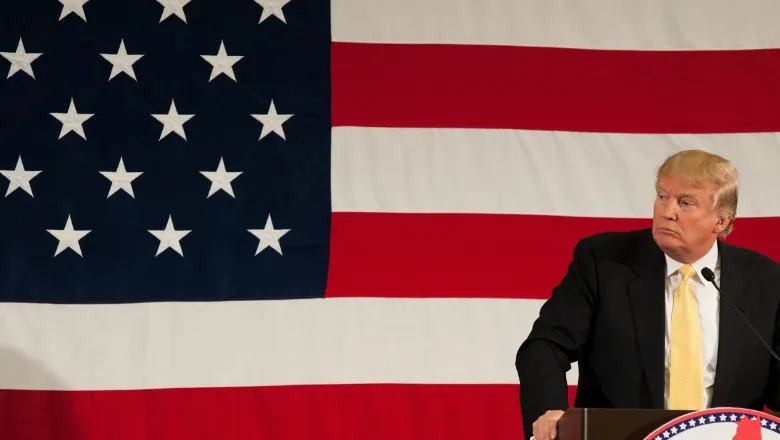One of Donald Trump's campaign trail stops was the 2024 Bitcoin Conference in Nashville, where he promised to make the United States the 'crypto capital of the planet'. But what might this look like?

In the wake of Donald Trump's electoral victory and an overnight increase in the price of crypto assets, Dr Rhys Bidder of the Qatar Centre for Global Banking and Finance explains what steps the incoming President, who has recently launched his own crypto venture, might take to take cryptocurrencies into the mainstream.
Many expect him to replace the head of the SEC with a candidate more positively disposed to crypto and who will lead the agency away from "regulation by enforcement" towards an approach that is more restrained, less ambiguous and perhaps even supportive. There are already members of the SEC who have expressed a desire for such an approach, and there are even pockets of bipartisan support for crypto in DC. As such, we could see a rapid change in the crypto regulatory and legislative environment.
Changes to watch out for
Dr Bidder explains that changes in policy to support cryptocurrencies could cross a range of different areas:
- How the SEC modulates its approach to whether certain crypto assets are securities (as opposed to commodities)
- How crypto assets are assessed for tax and financial regulation purposes
- Whether the government will include Bitcoin in the strategic reserve
- Whether the mining of bitcoin (with its enormous energy demands that were drawing the attention of environmentalists) is looked upon more favourably.
He continues: "it's hard to know how more subtle issues over the appropriate oversight of decentralised crypto protocols might evolve. There are important debates as to the role of smart contracts that allow individuals to exchange assets without an intermediary - should they be classed as regulated exchanges, should their designers be held responsible for the use of these contracts, should there be 'Know Your Client' and anti-money laundering... and so forth."
He adds that while a tension between traditional Wall Street supporters of Trump and the decentralised finance proponents of crypto may mean these changes are not plain sailing, "overall the Trump victory - and a strong Republican showing more broadly - is still a big positive for crypto."
The long term future for cryptocurrencies
Dr Bidder concludes that the supportive Trump presidency could be both a major opportunity and a major test for the cryptocurrency industry:
Trump's election will likely give a broader boost to crypto in a key market - probably the key market - that many people around the world have been waiting to come alive. There have been false dawns for crypto before, however, and the hope must be that the industry builds in a sustainable manner, rather than in fits and starts of recent years. Under Trump, crypto will have no excuse if it can't shed its (perhaps undeserved) image as immature and riddled with fraud.
Dr Rhys Bidder, Deputy Director of the Qatar Centre for Global Banking and Finance
Further reading on digital and crypto currencies from the Qatar Centre for Global Banking and Finance
CBDC and Banks: Disintermediating Fast and Slow (Rhys Bidder, Working Paper, June 2024)
Herding in the cryptocurrency market: A transaction-level analysis (Roland Gemayel, March 2024)
Response to Bank of England's consultation on systemic stablecoins (Rhys Bidder, February 2024)
Price Discovery between Bitcoin Spot Markets and Exchange Traded Products (Roland Gemayel, July 2023)
Wholesale Central Bank Digital Currency: A survey and analysis of central bank pilot exercises (Rhys Bidder, Working Paper, January 2023)
The Too-Big-to-Fail Problem and the Blockchain Solution (Michael Schillig, Macroprudential Matters blogpost, May 2022)
In this story
Risk Warning: Cryptocurrency is a unregulated virtual notoriously volatile instrument with a high level of risk. Any news, opinions, research, data, or other information contained within this website is provided for news reporting purposes as general market commentary and does not constitute investment or trading advice.







